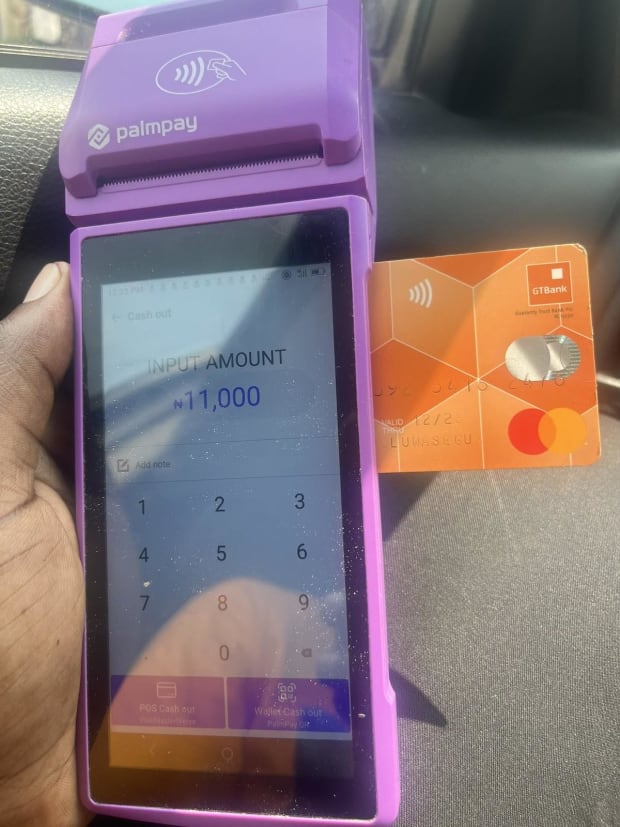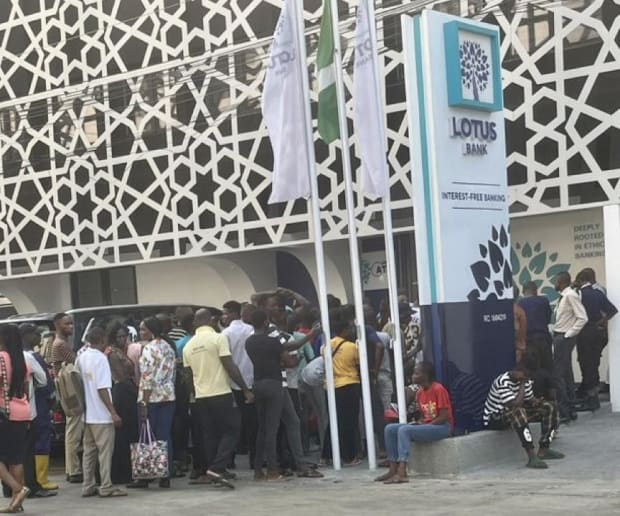Following a failed CBDC launch, Nigeria’s central bank is now trying to cut cash. Bitcoin can help Nigerians find sovereignty.
This is an opinion editorial by Heritage Falodun, a Bitcoin consultant and computer scientist based in Nigeria.
nigeria, africa most populous countryintroduced a central bank digital currency (CBDC), eNaira, to its financial system by the end of 2021, an action that paved the way for different sets of financial policies, regulations and restrictions from the country’s central bank.
In an attempt to push consumers towards alternative options, such as its CBDC, the Nigerian government has now put restrictions on the amount of cash that can be withdrawn. It has limited cash withdrawal from banks to around $225, which is around 100,000 naira per week, with a daily limit of around $45. This is yet another example of how Nigeria’s financial terrain has been a roller coaster of economic sabotage since eNaira’s launch.
In the words of Godwin Emefiele, the Governor of the Central Bank of Nigeria, the goal of the CDBC is to “ensure that more people in this country are financially included. If you see, a lot has happened in terms of the evolution of money from merchandise to metal, then paper, plastic and now we are talking about digital. Therefore, we must keep pace with where the world is moving.”
In his opinion, Nigerians should have discovered that CBDC is the solution to their financial problems such as inflation, currency censorship, rigorous payment rails, epileptic cross-border payment channels, and rigid access to foreign exchange, among others. . Not surprisingly, the opposite has happened, as the current situation in Nigeria is gradually shifting from “banking the unbanked” to “unbanking the banked”.
On February 2, 2023, just two days after the first January 31, 2023 deadline set by the Central Bank of Nigeria for all Nigerians to return the old denomination of 200, 500 and 1,000 naira notes: a Nigerian named Oluwasegun Kosemani tweeted, “I just spent 1000 Naira from my @gtbank @Mastercard Naira to buy 10,000 Naira cash from a @palmpay_ng POS. The Nigerian government is intentionally forcing its citizens into a cashless Keynesian economy while positioning their surveillance CBDC – eNaria as the final destination.”
As this example shows, well-informed young Nigerians, who happen to be a few 70% of the population of NigeriaPlease understand that these regulations refer primarily to financial control. It is about pushing for a cashless policy where the government has full control over all citizens while having the luxury of tracking every transaction.

Judging with less than 0.5% adoption rate in eNaira since its launch about 16 months ago, it seems that only government actions, like the cash restrictions Nigerians are struggling with right now, will force people to use CBDC.
However, the disposition of Nigerians is visible to the blind and audible to the deaf, as the country regularly tops the lists for the largest exposure to bitcoin and crypto.
How Nigerians are adjusting to new financial realities
To learn more about the balance between Bitcoin adoption and eNaira obligation, I spoke to some business owners in Nigeria. eric ogbenene, who works in the media and technology industry there and also runs a bespoke menswear business, said: “The cash-out policy has been ridiculous, to say the least. Only today, February 4, 2023, no physical cash could be obtained in the entire ultra-modern Garki market in Abuja, Nigeria. People cannot take care of small business, such as cash for services, transportation, etc. It’s so bad because even traditional banking apps seem to be overwhelmed by the surge in transactions and can’t cope.”
I interviewed an over the counter bitcoin liquidity provider called Oluwatimilehin Kayode, popularly known as “Pander” by its customers and merchants.
“How have you been dealing with the business in the midst of this new policy and cash shortage?” I asked.
“Brother, it’s not as easy as that, but we pushed you, if I’m going to be honest with you,” he replied in Nigerian dialect. “It’s crazy, it affected our P2P transactions on the exchanges a bit, as most of the transactions are still showing errors on the banking network and there are also transaction limits and high charges. But as you know, Bitcoin will always find a way out for us amid all the restrictions. Although we had little access to cash over the counter, we continue to conduct P2P transactions with Bitcoin and Tether using our existing conventional ways.”
Bitcoin podcast host Mary Imasuen has tweeted that “if vendors were open to accepting bitcoin payments, we wouldn’t have to deal with the craziness that’s going on in the country right now.”
Sharing his odyssey amid cash and transaction woes, Imasuen has experienced people withdrawing 20,000 naira with 3,000 naira as a fee being paid to merchants. She has I declare that “money is sold for money right now.”
Nigeria has always been a cash based society and with the current problems people are unable to get cash from banks or ATMs. Those who get cash must pay it at a premium and the prices of things have skyrocketed.

Perplexed as I am by the government’s actions, I feel that Nigerians are resilient. No wonder Ray Youssef, the CEO of Paxful, has written that “The youth of Nigeria taught me to think beyond the financial systems of the West and look for alternative payments to buy Bitcoin.”
Nigerians need to know right now that CBDCs are here and slowly but surely the government will continually restrict their access to cash until it is gone and has completely taken away everyone’s financial freedom.
Offering sustainable solutions, the best bet and only solution for Nigerians to achieve a cashless and decentralized economy is through Bitcoin, which is fundamentally different from the financial slavery cage headed by CBDCs. The Bitcoin blockchain democratizes proof-of-work finance by enabling transactions on a distributed, open, and transparent ledger, while CBDCs offer a closed-source, centralized fabric that provides full control and issuance to the government.
Until Nigerians decide to intrinsically separate money from state actors, the masses will remain slaves to central authorities. Ultimately, this is more of an opportunity for Nigeria to opt out and break the shackles of financial restrictions with Bitcoin.
This is a guest post by Heritage Falodun. Opinions expressed are entirely their own and do not necessarily reflect those of BTC Inc or Bitcoin Magazine.






